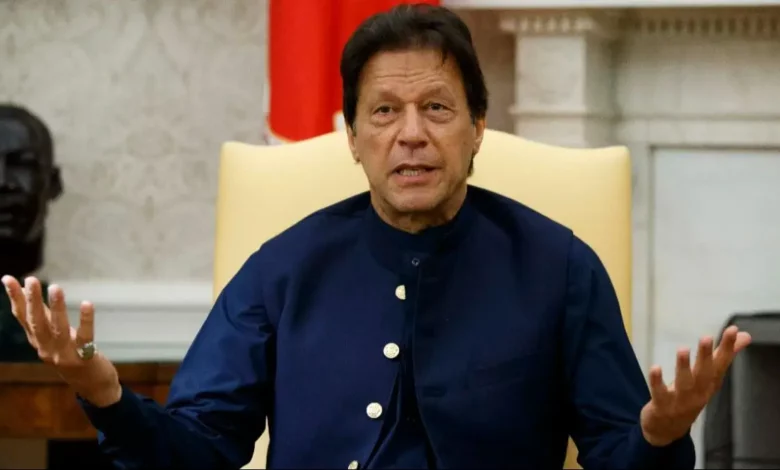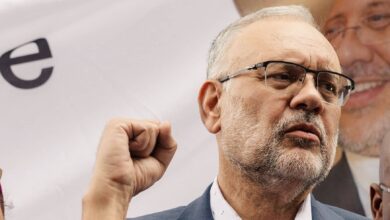
Former Pakistani Prime Minister Imran Khan has made a significant demand: calling for high treason proceedings against officials accused of stealing his party’s mandate in the February general elections. Khan believes these alleged actions allowed rival parties, the Pakistan Muslim League-Nawaz (PML-N) and the Pakistan Peoples Party (PPP), to form a coalition government instead.
Khan’s remarks came following the Al-Qadir Trust corruption case hearing, implicating his wife, Bushra Bibi, his aide, Farah Gogi, and property tycoon Malik Riaz. The case has brought attention to the controversies surrounding the February 8 elections in Pakistan, which were marred by allegations of vote rigging.
Although Khan’s Pakistan Tehreek-e-Insaf (PTI)-backed independent candidates won most seats in the National Assembly, the PML-N and PPP joined forces through a post-poll agreement to establish a coalition government. The PTI claims that this government was formed by stealing their mandate.
During the hearing, Khan asserted that his party received over 30 million votes, while 17 other political parties totalled the same number of votes. He stated that his party had reported irregularities in the election process to the International Monetary Fund (IMF) and highlighted flaws identified by non-governmental organizations.
In the United States, a protest occurred outside the IMF headquarters, denouncing the alleged election rigging. Khan expressed support for the demonstration but distanced himself from the anti-Army slogans raised by the protesters.
Khan labelled the denial of PTI’s electoral symbol and the deprivation of reserved seats as part of a conspiracy. He contended that these actions constituted high treason under Article 6 of the Constitution.
Challenging the Peshawar High Court’s decision on reserved seats in the Supreme Court, Khan emphasized that the Election Commission of Pakistan (ECP) cannot allocate PTI’s seats to other political parties.
The PTI faced a setback when the PHC unanimously rejected a petition from the Sunni Ittehad Council, challenging the election commission’s decision to allocate reserved seats for women and minorities to other parties. PTI-backed independent candidates had joined the Sunni Ittehad Council to secure a share of the reserved seats.
Khan criticized the February 8 elections, likening them to a fixed match orchestrated by the collaboration of the ECP and the caretaker government. He claimed that political parties and the establishment thwarted plans to introduce electronic voting.
Furthermore, Khan anticipated that the upcoming Senate polls would also be a “fixed match.” These elections for the upper house of the bicameral parliament are scheduled for April 2. When asked about the possibility of reconciliation with the government, Khan emphasized that it depended on a fair elections audit.
Regarding the current government’s sustainability, Khan cited the fragile economy and rejected accusations that the PTI had left the country on the verge of default. He pointed out that the previous government, the PML-N, had left a USD 20 billion deficit in 2018, leaving no choice but to seek assistance from the IMF.
Khan stated that the incumbent government lacked the mandate to implement structural reforms, suggesting they should borrow if they could repay the debt.
During the Al-Qadir Trust case hearing, Khan’s counsel concluded the cross-examination of a prosecution witness who served as the chief financial officer of Al-Qadir University.
The case centers around the settlement of 190 million pounds (approximately Rs 50 billion), recovered by the UK’s National Crime Agency from a Pakistani property tycoon. Instead of depositing the amount in the national treasury, Khan, the prime minister at the time, permitted the businessman, Malik Riaz, to use it to settle a fine imposed by the Supreme Court partially. In return, Riaz gifted about 57 acres of land to a trust established by Khan and his wife, Bushra Bibi, to establish Al-Qadir University.
Judge Nasir Javed Rana, presiding over the accountability court, also recorded the statement of another prosecution witness. Khan, Bushra Bibi, and their family members were in the courtroom. The case was adjourned until March 20.



